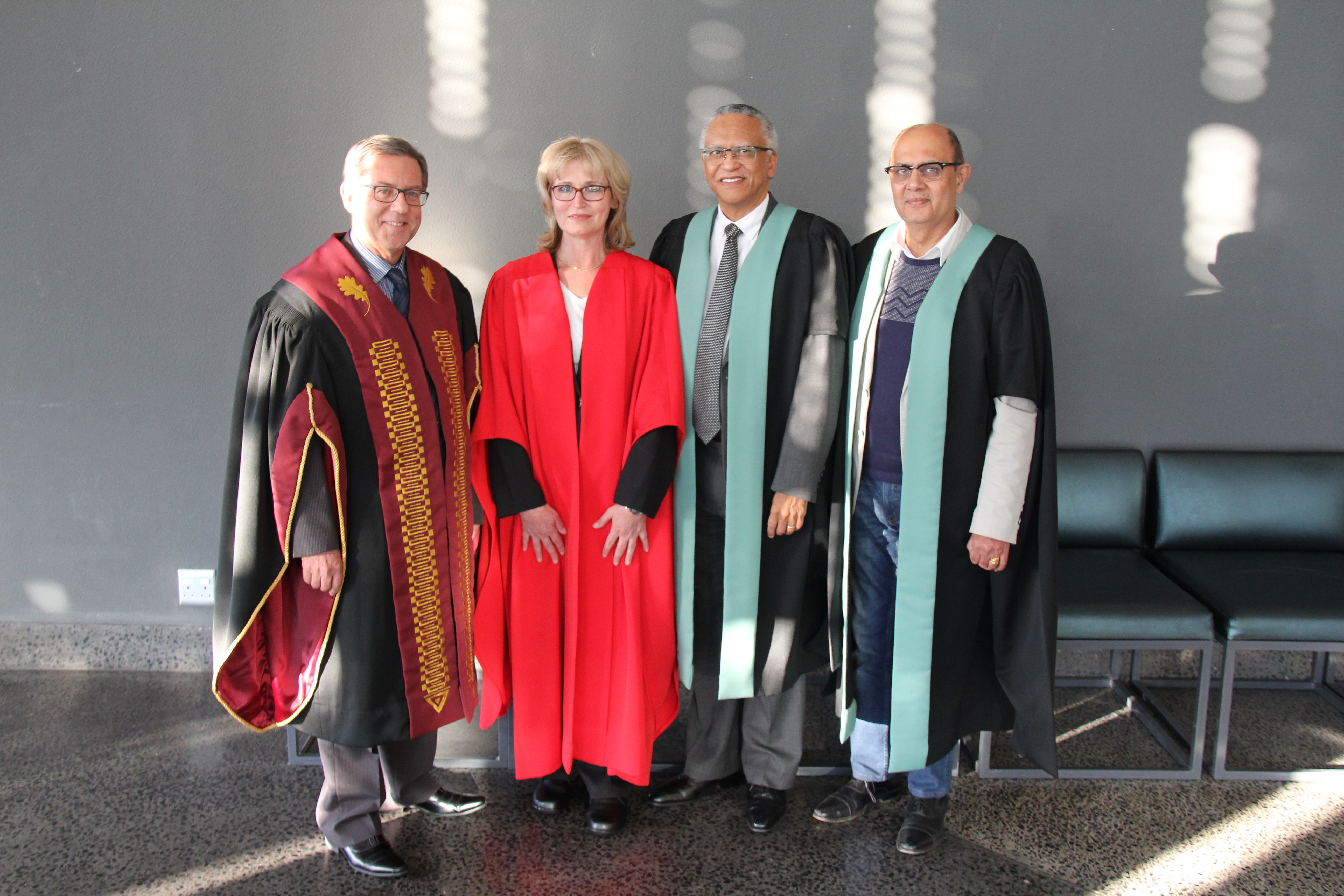New knowledge generated through genomic research (the study of an organism's genes and their functions) will continue to deliver effective drugs and bring hope for a cure of the treated conditions.
This was one of the viewpoints of Prof Maritha Kotze from the Division of Chemical Pathology in the Faculty of Medicine and Health Sciences (FMHS) at Stellenbosch University on Thursday (12 October 2017). She delivered her inaugural lecture at the FMHS.
Kotze said data that can be extracted from our genomics database resource could be used to study the role of genetics in health and disease and to provide information that could help clinicians improve the medical treatment of their patients.
“Collective knowledge gained through comparative effectiveness studies involving advanced molecular technologies performed alongside standard pathology, has translated into immediate clinical benefits for many patients over recent years."
Kotze added that genetic research could also help with the provision of precision medicine i.e. the tailoring of preventive and therapeutic interventions to the biological characteristics of the individual.
She cautioned, however, that precision medicine “should not be misinterpreted as the ability to design a unique treatment for every patient but should rather be considered as incremental improvements to ultimately provide rapid, accurate and cost-effective genomic service delivery at the point of care." 
Kotze said the promise to improve patient care at the bedside led to concerns that genomics is nothing more than hype and that the benefits are exaggerated.
“The reality is that cost barriers, misinterpretation of complex information and ethical concerns about genetic discrimination limit the application of precision medicine."
“Without a well-defined strategy to overcome the limitations of genetics alone to account for clinical manifestation of complex diseases and response to treatment, precision medicine will be caught between hype, hope and the real world."
“Individualised treatment based on complex genomic information requires integration and interpretation of data beyond that to which practitioners are accustomed."
Kotze said hopefully the integrative pathology-supported genetic testing model developed for clinical application would facilitate improved patient management and disease prevention across the disease spectrum.
She added that an in-depth understanding of genomics and the complexity of nature could help us separate hype from reality.
“Information gaps are steadily filled by ongoing data collection and health outcome studies linked to routine service delivery, towards the right treatment, for the right patient, at the right time."
Kotze said a major challenge for translation of genetic research into clinical practice is the shortage of clinicians educated in the field of genomics.
- Main photo: DNA strings (Credit: Pixabay)
- Photo 1: Prof Maritha Kotze with Proff Eugene Cloete, Vice-Rector: Research, Innovation and Postgraduate Studies, Jimmy Volmink, Dean of the FMHS, and Rajiv Erasmus, Head of the Department of Chemical Pathology, at the inaugural lecture. Photographer: Rudolf Boshoff

